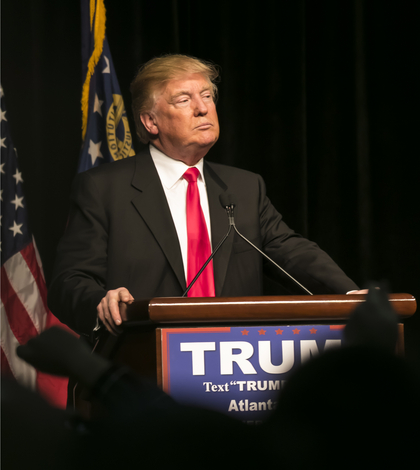That’s the opinion of one local economist, but another says California, under the new administration, could pay for being too Democratic. Meanwhile, one commercial real estate broker is pleased a true businessman is in the Oval Office.
How will the Inland Empire fare under the Trump Administration?
That depends on who you ask.
One local economist who supports Trump says he’s not overly confident. He says he fears California with get little or nothing in the way of federal dollars during the next four years, because Trump will funnel that money into states that will do him more good politically.
But another local economist who didn’t support Trump last fall, and who remains skeptical about his chances for success between now and 2020, is taking more of a wait-and-see approach regarding the 45th president.
“If he ends up doing some of the things in manufacturing that’s he’s talked about doing, or if he can get an infrastructure [improvement] program in place, both of those things would be helpful,” said John Husing, who has been tracking economic trends in Riverside and San Bernardino since the mid-1960s.
“But if he starts slapping tariffs on everything, or if he does away with the ACA [Affordable Care Act, also known as Obamacare], then there could be problems, because logistics and health care are two of our biggest industries.”
Husing feels so strongly about Trump’s potential impact on the two-county region that he plans to address the topic later this month when he delivers his annual assessment of the state of the Inland economy.
Jay Prag, professor of economics at the Drucker School of Management at Claremont Graduate University and a Trump supporter, isn’t as optimistic.
California is an overwhelmingly Democratic state, one of the few states where the GOP holds little or no sway, and that will not change during the next four years, Prag said during a recent lecture at Drucker School.
Therefore, it makes more sense for the Trump Administration to put federal money into other states – Pennsylvania, Wisconsin and Michigan, for example – that usually vote Democrat in presidential elections but that voted for Trump last November.
Even Trump’s proposed $1 trillion nationwide infrastructure improvement plan, something that could benefit California and the Inland Empire immensely, could fall by the wayside, Prag said.
“I’m not saying they will do this out of revenge, or spite,” Prag said. “They will do it because it will make political sense for them to do it. I don’t know what would have to happen, in terms of a political shift, for California to get any money out of Washington, D.C., during the next four years. I think that’s something to be concerned about.”
There is also the possibility of a trade war with China, one of Southern California’s top international trade partners.
Trump made attacks on China a major part of his campaign, accusing Beijing of stealing jobs through one-sided trade deals. At one point, Trump suggested the possibility of putting a 45 percent tariff on Chinese imports. Should that happen, it could cause all of the Chinese investment that have flowed into the Southern California economy to dry up quickly.
It could also be trouble for the Inland Empire’s logistics industry, although such a scenario would take time to play out.
“They’ve talked about doing a border adjustment tax, which in essence would be a tariff,” Prag said. “A tax like that could decrease the amount of goods coming into the United States via the Pacific Ocean. We could still make deals with Canada and Mexico, but the Inland Empire relies very heavily on goods coming in from the Far East.”
But Trump, given his business background, is not likely to do anything that will hurt business, said Joseph Brady, president of The Bradco Companies in Victorville, one of the largest commercial real estate brokerages in the High Desert.
“I think Donald Trump is going to be great for the Inland Empire,” Brady said. “He’s a businessman, and he’s going to do things for the business community, not the bureaucracy. We can’t keep doing business like we are in California. No one wants to do business here because there’s too much regulation.”
Trump’s proposal to rebuild the national infrastructure is a good one, although it might ultimately cost more than $1 trillion to rebuild the country’s roads, bridges, dams and highways, Brady said.
“I don’t think he will be able to do what [President] Eisenhower did when he built the interstate system, but I do think he will be able to get something done in that area,” Brady said. “The important thing is that Trump understands we have too much government, and that the more government we have the worse things get.”
The biggest problem with the Trump Administration is not yet knowing what it’s going to do, said Vincent McCoy, director of the Inland Empire Small Business Development Center.
“I see a lot uncertainty, because they haven’t spelled out a lot of their policies,” McCoy said. “There are a lot of people waiting to see what’s going to happen.”
 IE Business Daily Business news for the Inland Empire.
IE Business Daily Business news for the Inland Empire.


